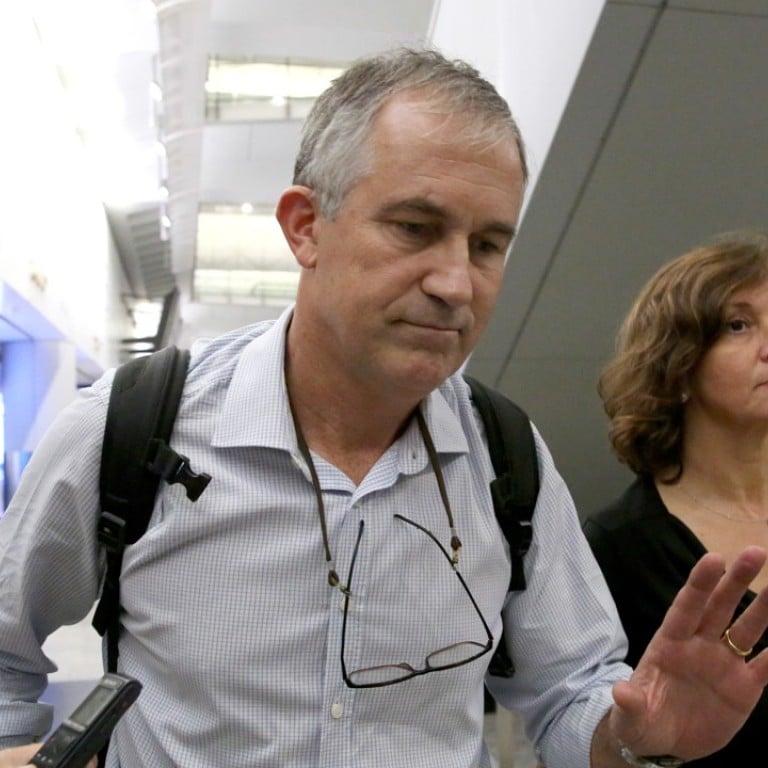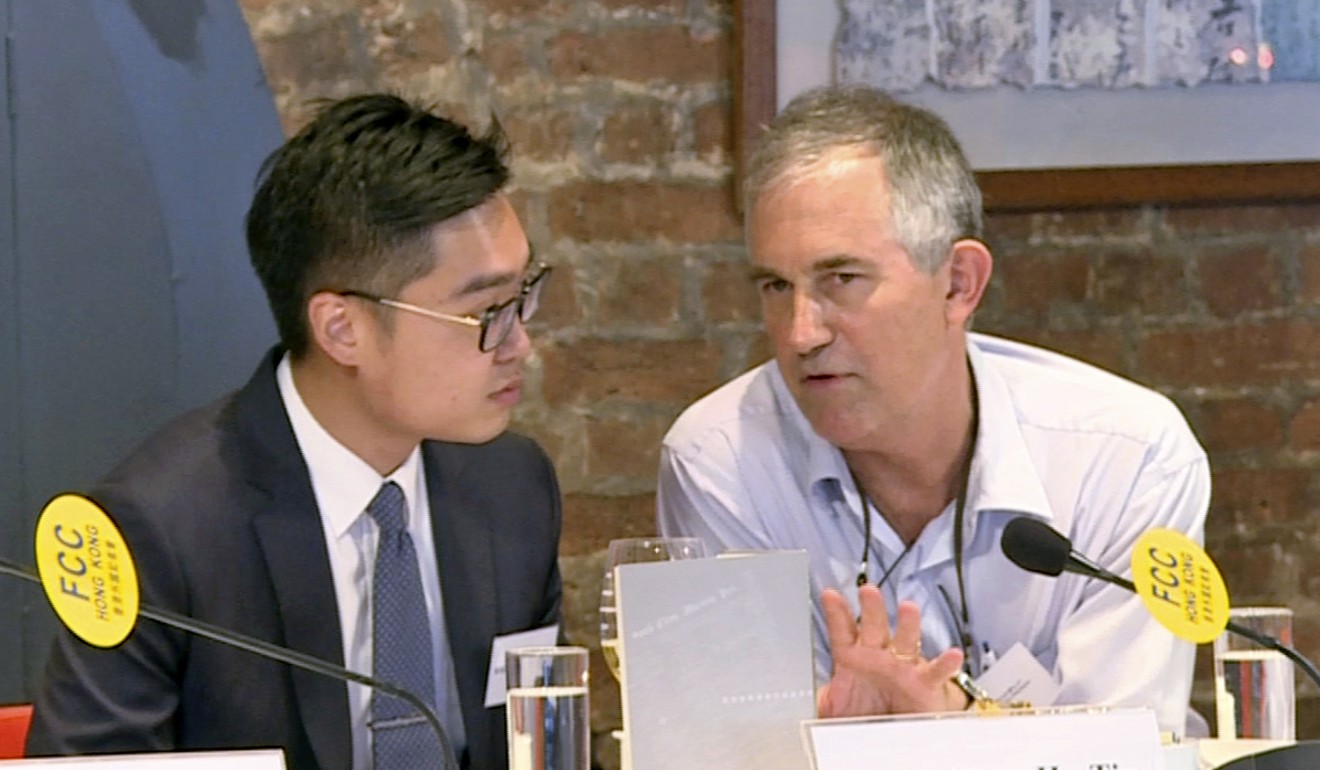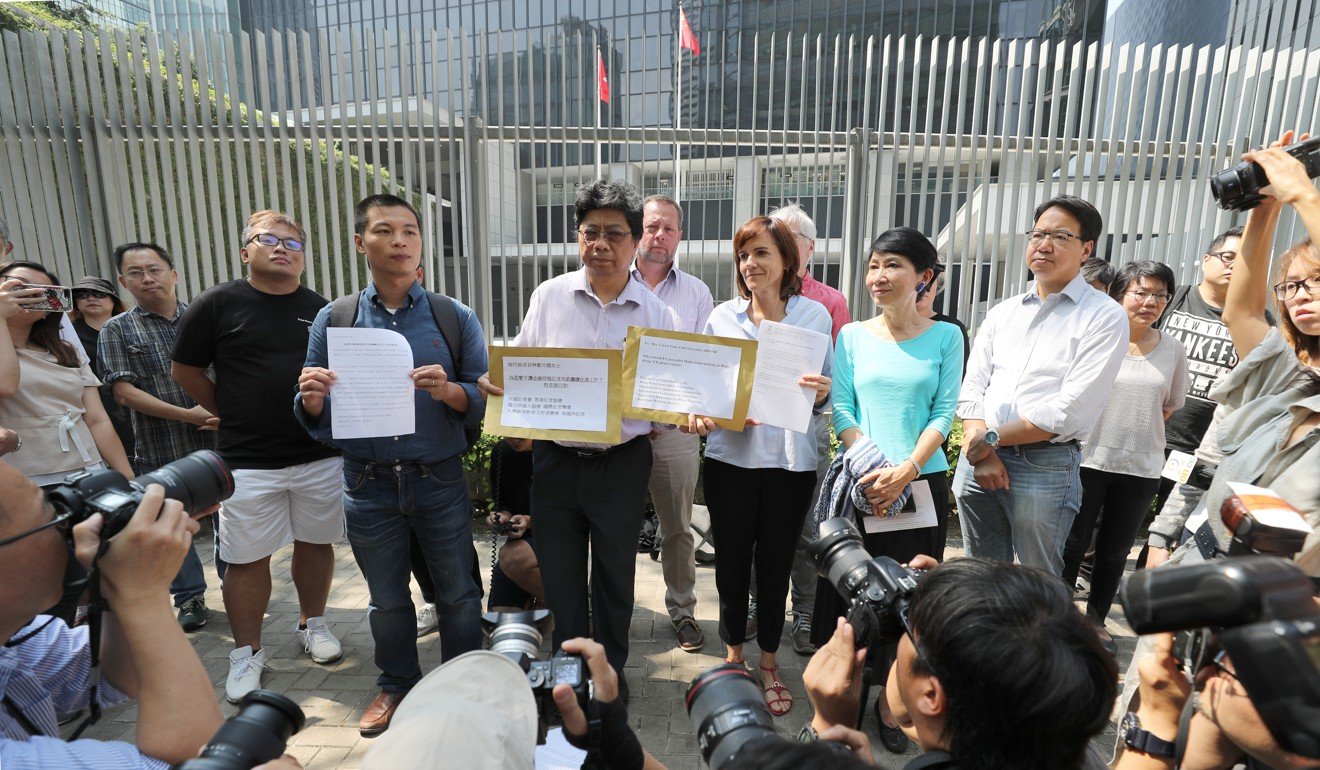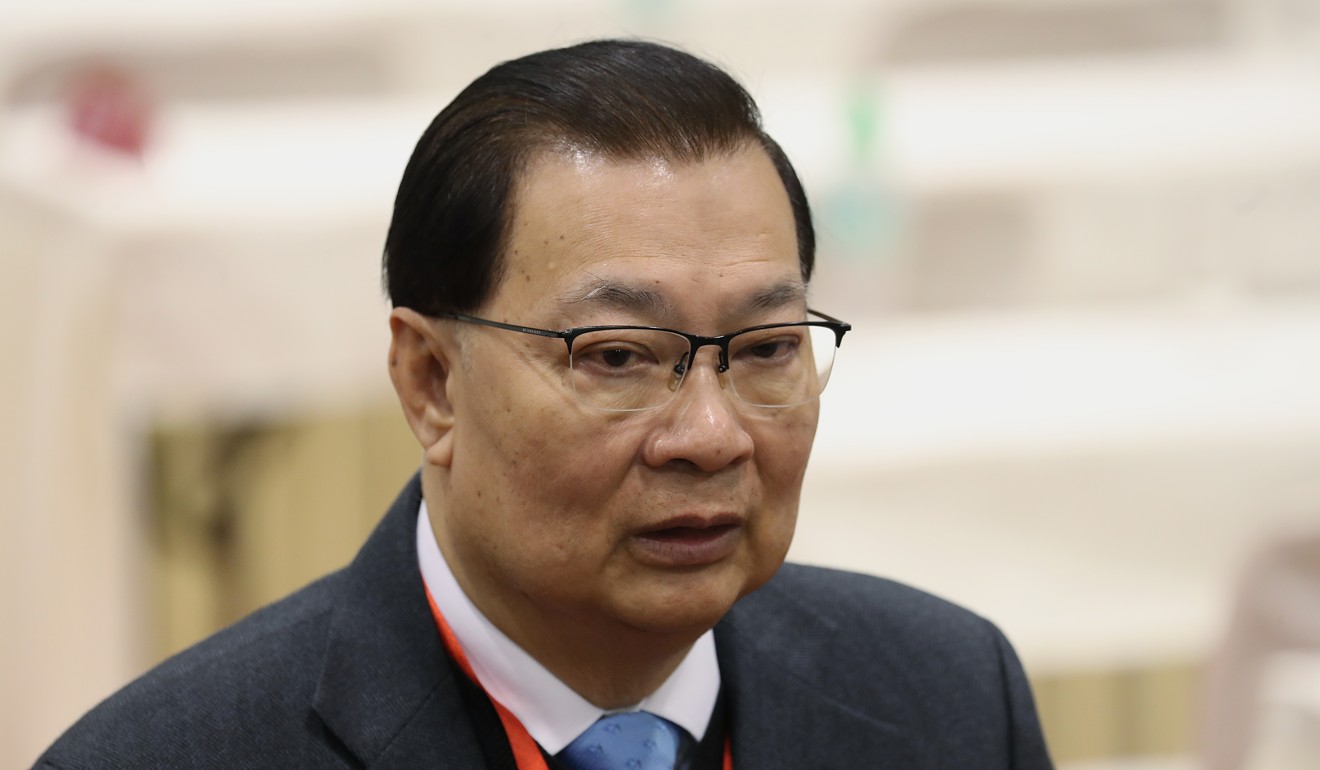
Financial Times journalist Victor Mallet allowed back into Hong Kong for seven days only – even though British tourists can stay for six months
Mallet returned from Bangkok on Sunday night and was understood to have been questioned at immigration
The British journalist at the centre of a political storm after he was denied a working visa by the Hong Kong government has been given seven days to leave the city.
Victor Mallet, Asia news editor for the Financial Times, will be allowed to stay for one more week on a visitor’s visa, even though British tourists can remain for up to six months – a decision slammed by opposition politicians and welcomed by their pro-establishment counterparts.
Mallet was grilled by immigration officers on his return to the city from Thailand on Sunday before being allowed to enter, a source with direct knowledge of the matter told the Post.
This came as business leaders and global media groups raised concerns about the government’s “worrying” move, warning it could damage Hong Kong’s reputation and competitiveness on the world stage.
While the government offered no reason for first rejecting Mallet’s visa renewal application last week, it has been widely linked to his role as acting president of the Foreign Correspondents’ Club (FCC), where he chaired a pro-independence talk by Hong Kong National Party convenor Andy Chan Ho-tin in August, despite strong objections from the city’s government and Beijing.
Clearly, he is not welcome to stay
Lu Kang, a spokesman for China’s foreign ministry, on Monday said authorities had exercised their “legitimate right” to deny Mallet a visa, and handled the matter “in accordance with the Basic Law”.
Lu added that the ministry did not believe the decision would hurt the city’s reputation.
Business chambers play down concerns over journalist’s visa refusal
However, in a strongly worded statement, the American Chamber of Commerce said the rejection of Mallet’s working visa sent a “worrying signal”, as business and trade could not be reliably conducted without a free press.
“Any effort to curtail press freedom in Hong Kong could damage Hong Kong’s competitiveness as a leading financial and trading centre,” the statement read.
A day earlier the chamber’s president, Tara Joseph, told the Post businesses were more concerned with ensuring a level playing field for firms, but she would not comment directly on the visa controversy.
Why does Hong Kong National Party rile Beijing so much?
International media also weighed in, with Reuters news agency saying: “The ability of the press to operate freely and without fear of retribution is vitally important in every country. We are troubled by the reports from Hong Kong, and are seeking more information on the situation.”

The European Union has issued a stronger statement on Monday, saying the denial of Mallet’s visa renewal has set a worrying precedent.
“In the absence [of] a credible alternative explanation from the authorities, the decision appears politically motivated and therefore raises serious concerns about freedom of the press and freedom of expression in Hong Kong. It risks damaging Hong Kong’s international standing and trust in the ‘one country, two systems’ principle,” its spokesman said. “Journalists must be allowed to perform their work independently and without interference.”
The EU office in Hong Kong has said on Sunday it expected the government to clarify the reasons for the refusal to grant visa to a journalist and said the incident has raises legitimate questions about the freedom of press and expression in the city.
But, pro-establishment lawmaker Regina Ip Lau Suk-yee, a former Hong Kong security minister, said giving Mallet the short-term visa was “reasonable”.
Visa denial for Victor Mallet sends ‘chilling message’, Financial Times says
“Clearly, he is not welcome to stay,” she said. “I think it is reasonable for immigration to allow him to stay for several days for him to wrap up his business and then leave.”
Lawmaker Alvin Yeung Ngok-kiu, leader of the opposition Civic Party, disagreed and called it an exceptional arrangement.
“Is this any way to demonstrate the tolerance of Hong Kong as an international city?” he said.
On Monday, Mallet’s employers in London said they were still seeking clarification from the Hong Kong government as to why his visa renewal had been rejected.
Is this any way to demonstrate the tolerance of Hong Kong as an international city?
Mallet’s stay might not be in the public interest as he had offered a “high-profile platform for independence advocates”, she said, adding she believed the government had expected a backlash from the international media.
The journalist was questioned on arrival because his work visa was no longer valid, and given a seven-day visitor’s visa. British tourists are normally allowed to visit for up to six months without a visa.
In response to questions from the Post, the Immigration Department said: “The Immigration Ordinance has stipulated that any immigration control officer may impose a limit of stay, or other conditions of stay, on a person given permission to land, or remain in Hong Kong.”
Po Wing-kay, chairwoman of the Bar Association’s committee for constitutional affairs and human rights, also questioned the government’s legal basis for essentially “expelling” Mallet.
She pointed out that Mallet had only moderated the talk featuring Chan, a month before the HKNP was officially outlawed on national security grounds.
Meanwhile, about a dozen representatives from journalist groups – including the Hong Kong Journalists Association (HKJA) – held a rally outside government headquarters at Admiralty, urging the authorities to give a full explanation, as they submitted a petition with 15,000 signatures.

Asked whether the FCC would change the way it hosted events in the future, the club’s president, Florence de Changy, said: “I don’t see why.”
A French national, de Changy said she had no concerns regarding her own visa: “I’m not worried, it is useless to be worried.”
HKJA chairman Chris Yeung Kin-hing said the incident would only increase pressure on the media and lead to more “self-censorship”.
Opinion: No surprise reporter’s visa was refused
But Tam Yiu-chung, the city’s sole delegate to China’s top legislative body, the National People’s Congress Standing Committee, insisted it was “reasonable” for the Hong Kong government to reject Mallet’s visa renewal after he hosted the pro-independence talk.
“When people have expressed their opinions and you went ahead [with the talk], what can be done?” Tam said, referring to the objections in advance raised by the Hong Kong government and China’s Ministry of Foreign Affairs.

Hong Kong Immigration Assistants Union chairman Daniel Lau Yuk-fai said the duration of a visitor permit was subjected to change under immigration control policy.
“[British tourists] can stay for up to six months without a visa in general cases, but the duration can be shortened to two to three days,” Lau said.
“[Mallet’s] application for a working visa was rejected and he was not allowed to work [as a journalist], whether paid or unpaid, under his stay as a visitor.”
Lau said the decision, in most cases, was made by a member of senior management after a dialogue with the person concerned.
Additional reporting by Alvin Lum



